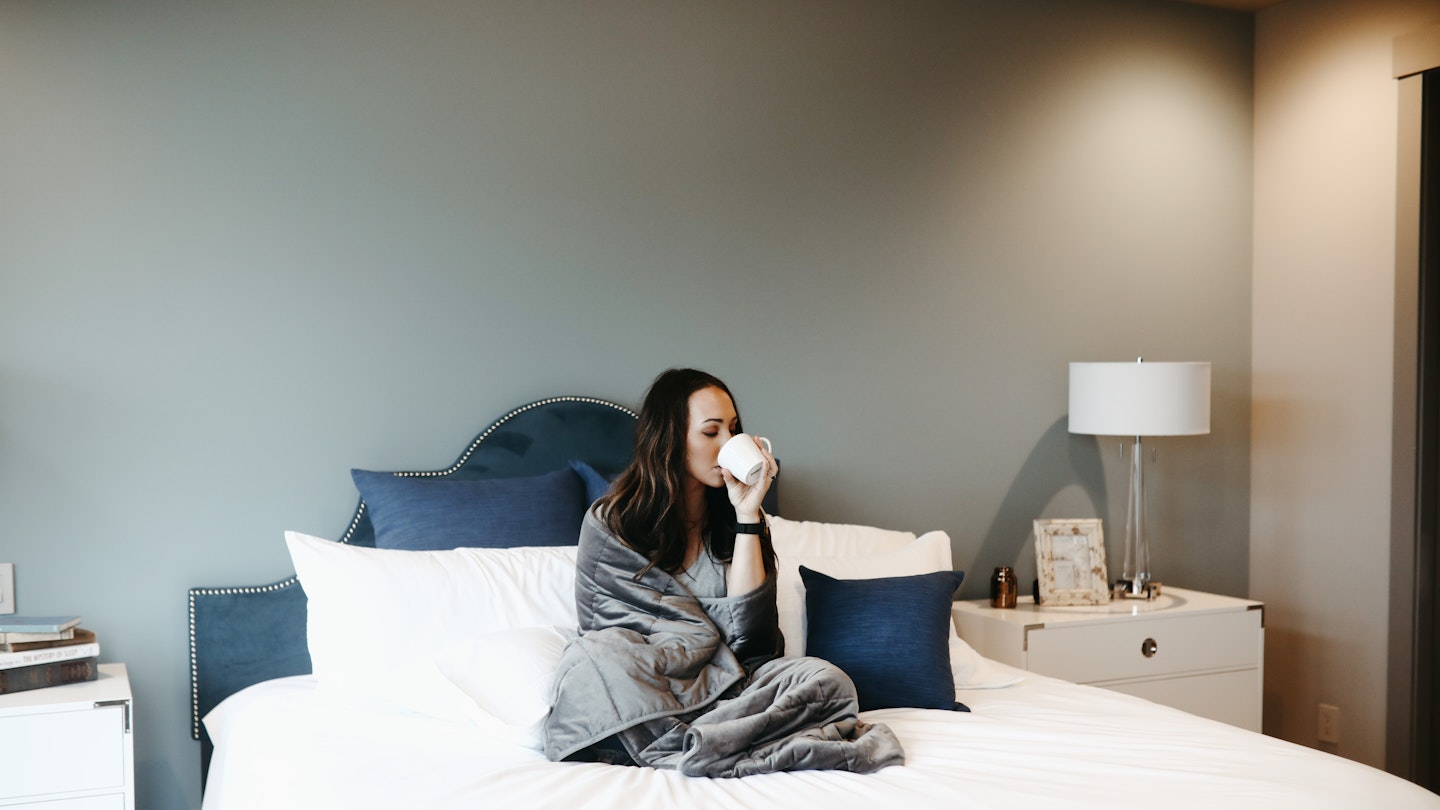Here’s a fun internet quiz for our times! Which coronavirus reaction type are you?
Are you A) the naysayer, scoffing anyone who’ll listen that the outbreak is ‘no worse than a cold!!’? Or B) the alarmist, stockpiling baked beans and booming updates on every new diagnosis and worse-case-scenario across the pub like a Fox News auditionee?
Or maybe you’re in my camp, C) the ones for whom the past few weeks have been a haze of headlines and hand sanitiser, false alarms and frantic Googling. Who just wish everyone would stop talking about it for five minutes. Whose chests are tight not with virus, but panic. As far as we know.
Some would call it hypochondria; preserve of attention-seekers, butt of jokes. Psychologists call it health anxiety – I almost wept the day I discovered the term, grateful to realise it’s my brain that’s the drama queen, not me – and they usually file it within the Obsessive Compulsive Disorder(OCD) spectrum of mental health disorders.
Health anxiety is characterised by constant preoccupation with having or contracting a serious illness, and a hyper-vigilance of bodily sensations, monitoring every shiver and tingle for signs of imminent death. There are few official figures, but in Australia the condition is thought to affect 6% of people. Anxiety UK has confirmed that it seems to be on the rise here, citing the internet (what else?) as a likely trigger.
It’s a vicious circle. I worry about a possible illness and my anxiety rewards me with very real bodily symptoms – nausea, dizziness, headaches, palpitations, which in turn makes me more anxious, which in turn makes me feel more ill.
Personally, I’ve been like this since I was a kid. But in more recent years, Dr Google and I have become firm frenemies, barely a week going by without a "digital consultation", losing hours of my life to Reddit threads and WebMD until I find the most calming prognosis. My internet search history reads like a Medieval plague diary. The list of things I’ve mis-diagnosed myself with over the years includes: water intoxication, deep vein thrombosis, multiple sclerosis, tapeworms, gallstones, brain tumours, consumption (I’d watched Moulin Rouge) and Toxic Shock Syndrome (roughly once a month since I first read the back of a tampon box). I’m pretty fortunate, though; I’m functioning. For some sufferers, health anxiety can be completely debilitating.
You see, it’s a vicious circle. Iworry about a possible illness and my anxiety rewards me with very real bodily symptoms – nausea, dizziness, headaches, palpitations, which in turn makes me more anxious, which in turn makes me feel more ill. This is the detail that snarky jokes about hypochondria fail to grasp; that for many of us, the idea of illness isn’t ‘all in our heads’ at all. It’s in our stomachs, our chests, our muscles and bones.
The difficulty in distinguishing between anxiety symptoms and symptoms borne from a ‘real’ condition is that, well, often you can’t. The one time you ignore that gut feeling, Sod’s law hisses in the back of your mind, is the time it’ll turn out to be cancer. Even writing this article feels like a reckless tempting of fate. ‘Journalist who wrote about worrying she had coronavirus diagnosed with coronavirus’, the papers will say.
So how do we cope in the current climate? I wish I had a conclusive prescription. The NHS recommends keeping a diary of health panics, listing every spiraling worry (‘this headache is meningitis’) alongside the most likely explanation (‘I have drunk three coffees and no water today’). In the long run, cognitive behavioural therapy (CBT) is one of the most proven and effective ways of dealing with health anxiety. I had some, years ago, and it helped. I’m on the waiting list for more.
But in the short-term, I know that the best thing I can do is distract myself from coronavirus, if I can, for as long as I can. To stay off Twitter, or at least mute the worst doom merchants and resist clicking on the trending topic to see each update multiply. We can seek solace in statistics too. It’s not an ideal solution – focusing on the argument that coronavirus is only a problem for the elderly and those with preexisting conditions is, as many people have rightly pointed out, selfish; a sad symptom of the ageism and ableism that still runs through our society. But it’s also the only reasoning getting me out of the door some mornings.
I’ve also started running more – a mental health cliché, I know. But when I run, my head stops throbbing for a little while and I can focus on the sweat and ache and breathlessness that are supposed to be there. It’s a helpful way to remind myself each morning that my body is, for the most part, functioning exactly as it’s supposed to. That I’m one of the very lucky ones, and have been since before the virus hit the headlines.
READ MORE: Leavism Is On The Rise - But Don't Let It Lead To Burnout
